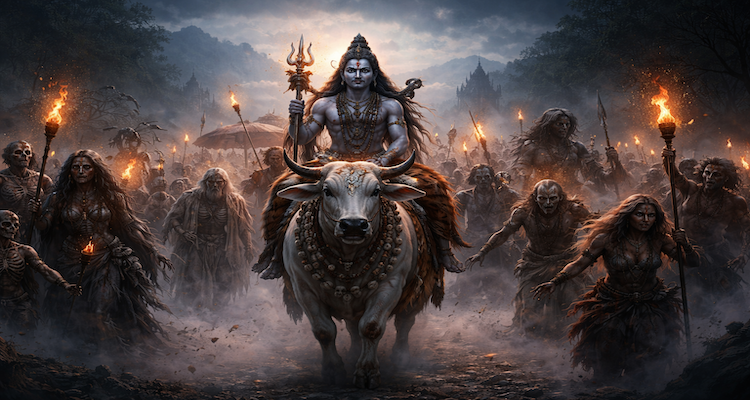The Psychology of Immortality: Why We Fear Living Forever

Exploring the paradox of immortality—why humanity dreams of eternal life yet instinctively fears living forever. A psychological dive into our timeless obsession.
Introduction: The Paradox of Eternal Life
Since the dawn of civilization, humans have dreamed of transcending death. From ancient alchemists seeking the Elixir of Life to Silicon Valley technologists developing “digital immortality,” the pursuit of eternal existence has never ceased. Yet, beneath that yearning lies an unsettling paradox: we fear living forever as much as we fear dying.
Immortality, once a mythological fantasy, is slowly edging into the realm of scientific plausibility. But as researchers explore genetic manipulation, mind uploading, and anti-aging biotechnology, psychologists warn that the psychological cost of eternal life may be far greater than we imagine.
Context & Background: A Timeless Obsession
The idea of immortality is woven deep into the human psyche. Ancient texts—from the Epic of Gilgamesh to The Fountain of Youth—reflect our desperation to outwit mortality. Religions offered spiritual forms of eternity, while modern science seeks biological or digital versions.
In recent decades, companies like Altos Labs and Neuralink have revived this dream with billion-dollar investments into life-extension and brain preservation research. Longevity startups now promise to “reverse aging” or even “upload consciousness” into machines, hinting at a future where death could become optional.
But while technology accelerates toward this possibility, psychology poses a haunting question: are we mentally and emotionally equipped to live forever?
Main Developments: The Fear Behind Immortality
Psychologists refer to this phenomenon as “existential fatigue”—the dread that an infinite life could lead to unbearable monotony, loss of meaning, and emotional burnout.
Dr. Sheldon Solomon, a leading researcher in terror management theory, explains:
“Our fear of death gives life urgency and meaning. Remove mortality, and our motivational structure collapses.”
Immortality, paradoxically, could destroy the very essence of what makes life valuable—its fragility. Without the boundaries of time, human ambition, love, and purpose may fade into numbness.
Moreover, philosophers like Bernard Williams have argued that immortality could lead to psychological decay. In his famous essay “The Makropulos Case,” Williams suggests that eternal life would erode our identities, as every experience eventually becomes repetitive and void of novelty.
Expert Insight: The Emotional Cost of Forever
Contemporary psychologists are beginning to explore the mental strain of theoretical immortality.
Dr. Laura Carstensen of Stanford University’s Longevity Center notes:
“Even small extensions in life expectancy create profound shifts in how people plan, love, and value their time. Imagine the psychological distortion of living indefinitely.”
Her research suggests that human motivation thrives on scarcity. Goals, achievements, and relationships are fueled by the awareness of limited time. Without an endpoint, emotional intensity diminishes.
Public sentiment mirrors this unease. In surveys conducted by Pew Research, while most people support life-extension technologies for curing disease or prolonging health, only 38% say they would want to live forever. The majority cite fears of boredom, loneliness, and disconnection from future generations.
Impact & Implications: Society Without Death
If immortality ever becomes reality, the consequences would ripple far beyond individual psychology. Economically, population control would become a moral dilemma. Socially, generational stagnation could choke innovation, as older minds dominate indefinitely.
Ethically, questions would arise: Who gets to live forever? Would immortality be a luxury for the wealthy? And what happens to love, marriage, or faith when “forever” truly means forever?
From a societal standpoint, death has always acted as nature’s renewal mechanism—making room for new ideas, leaders, and lives. Without it, the very rhythm of civilization could fracture.
Even AI-driven “digital immortality,” which promises to preserve our consciousness in virtual realms, may not offer solace. Philosophers warn that an uploaded mind might merely simulate consciousness, creating an immortal illusion rather than true survival.
Conclusion: Embracing Mortality as Meaning
In the end, the pursuit of immortality may reveal more about our fear of insignificance than our hatred of death. We cling to the idea of living forever because we can’t bear the thought of being forgotten. Yet it is precisely mortality—the fleeting nature of our existence—that makes life beautiful, urgent, and worth living.
As technology races ahead, psychology reminds us that eternity might not be liberation but imprisonment. Perhaps the true art of living isn’t about escaping death, but learning to live fully within its boundaries.
Disclaimer:This article explores psychological and philosophical perspectives on immortality. It is intended for informational purposes only and does not provide medical or scientific advice.










